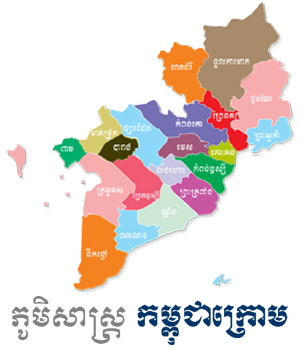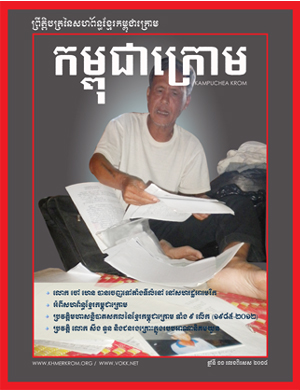On Saturday 1 June 2019, the Khmers Kampuchea-Krom Federation (KKF), the Hawaii Institute for Human Rights (HIHR) and the Unrepresented Nations and Peoples Organization (UNPO) held their Second Symposium on the Khmer-Krom’s Right to Self-Determination. The event, which took place at the Peace Palace in the Hague, commemorated the forced merger of Cochinchina with Annam and Tonkin to form the State of Vietnam, without the Khmer-Krom’s consent.
The KKF have been key supporters of self-determination not just in their own domestic context, but worldwide through their actions with UNPO and its members. This day was no exception, as the KKF invited members ranging from West Papua to Catalonia to talk about what leading a self-determination movement entails. Before the panels, introductory speeches were made by Soubert Son, the High Privy Councillor of His Majesty the King of Cambodia; Sereivuth Park, the Executive President of the Khmers Kampuchea Krom Federation.
The event then went on to two panels, one focussing on the Khmer struggle in Vietnam and the multidimensional approach to addressing it, and another panel comprised of UNPO members to discuss broader strategies when defending minority rights and the right to self-determination.
Present in the first panel was Hugo Lundberg, who talked about the legacy of colonialism in occupied countries and how colonial mindsets are replicated by the elites that take over from colonisers. Also present were members of the international human rights community such as Dominic Nardi, a senior Policy Analyst at the US Commission for International Religious Freedom, who focuses on China, Indonesia, and Vietnam. Mr Nardi addressed the worsening situation for the Kampuchea Krom and stressed the importance of defending religious freedom rights. He insisted it was not a case of the US trying to impose its values but rather a legal obligation under international law that Vietnam had signed up to. Joshua Cooper, the moderator for the panel and member of HIHR, added that Vietnam should be a “country of priority concern”.
The second panel was moderated by UNPO Secretary General Ralph Bunche and comprised Benny Wenda, considered by many to be the leader of the West Papuan struggle and head of the United Liberation Movement of West Papua; Eliza Paluzie, the head of Assemblea Nacional de Catalunya, the largest civil society organisation advocating independence from Spain and currently campaigning for the release of the Catalan political prisoners; and Attiya Gamri, a former Dutch MP also involved in the Assyrian struggle and head of the newly established Assyrian Confederation of Europe. All three gave vivid details of both the personal challenges they are confronted with as activists and the broader challenge their communities faced, while sharing strategies and anecdotes to learn from these experiences.
After the intermission, UNPO Secretary General Ralph Bunche delivered a speech summarising a three-point plan he had derived from the morning session that will prove crucial to UNPO members’ future actions and activities. First, the Secretary General highlighted the importance of testifying in the public sphere in creating personal, emotional connections, while simultaneously integrating this into the bigger picture: “Tell your stories, the stories of your families”. Second, he addressed the issue of mobilisation: “Demonstrations […] show that you care, that you are willing to come out”, the Secretary General explained. Engagement in local politics, an idea exemplified by Attiya Gamri [who was an elected Member of the Dutch Second Chamber] was also a key part of mobilisation. Thirdly, the need for support was outlined: showing solidarity not just with your people but also people outside, by building coalitions with similar struggles and advocating as a block.
The event’s intermissions were marked with traditional Khmer blessings in the form of dance. The KKF also hosted a private event in Breda later that evening to continue the commemorative event. UNPO













